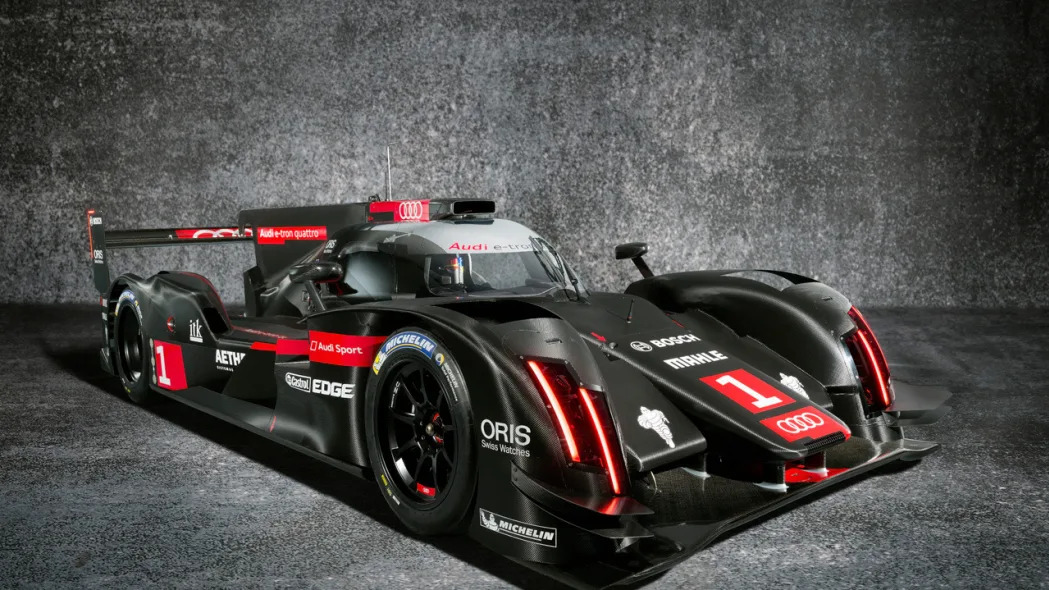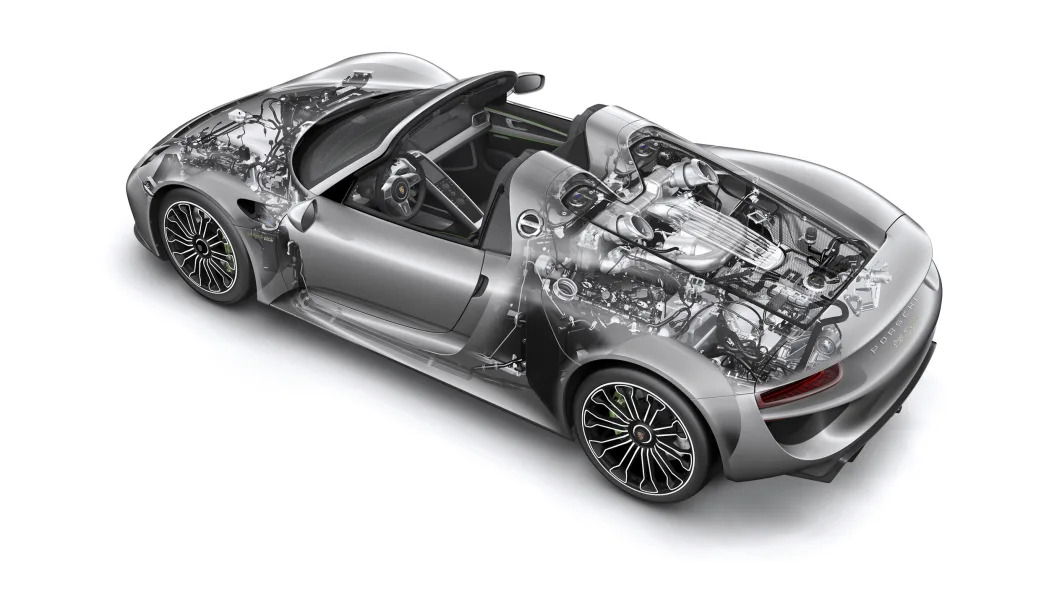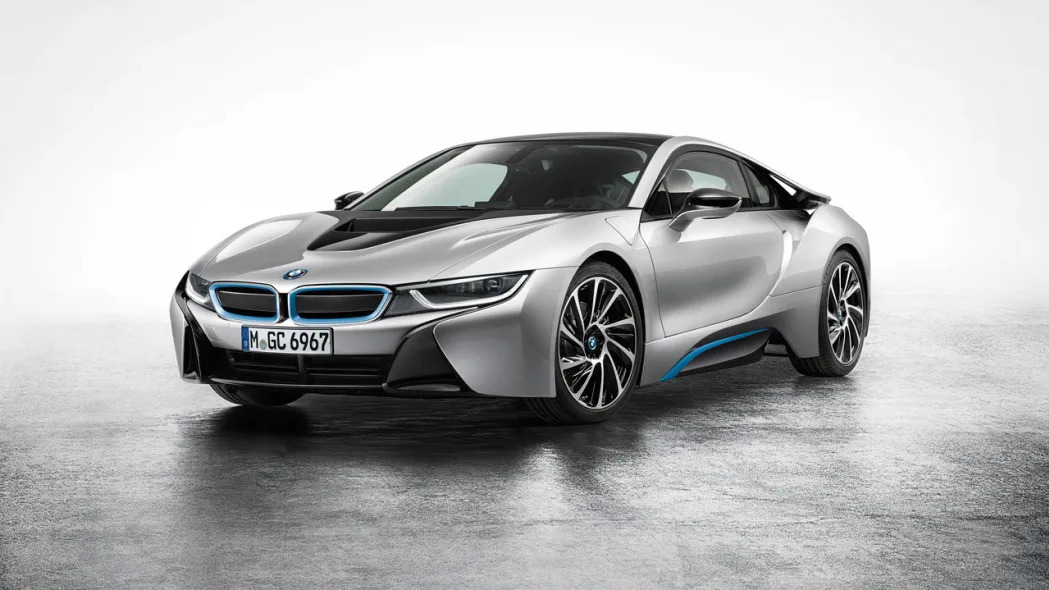A few months back, we took a 500-foot view of the culture of American cars, dissecting prides and prejudices on our way to the conclusion that automotive allegiances can be simultaneously embraced and derided. We had so much fun with the narrative that we decided to do it again, this time taking a look at Germany and its world-renowned lineup of automakers, including the likes of Audi, BMW, Mercedes-Benz, Porsche and Volkswagen, among others.
Join us below as we discuss the points and counterpoints that make or have made the German auto industry what it is today.
And remember, Germany did pretty much invent the automobile, after all...
The V12 Engine
If America is known for the proliferation of the V8 engine, an argument could be made that Germany owns the V12. Yes, of course, other companies have created V12 engines – Ferrari, Jaguar and Lamborghini immediately come to mind – but the big 12-cylinder powerplants from BMW and Mercedes-Benz, in particular, have proven to be some of the most effortless, luxurious and downright over-built engines the world has ever seen.
These days, having 12 cylinders is more a case of wretched excess than ever before, and yet, you can still stroll into your local BMW or Mercedes dealership and get a brand-new 760i, S600 or even an over-the-top G65 AMG, efficiency be damned.
Best of all, since the majority of these German powerhouses depreciate as fast as an anchor sinks, nearly any auto enthusiast who dreams of a dozen cylinders can satisfy their carnal desires.
Current Star: 2016 Mercedes-Maybach S600
Join us below as we discuss the points and counterpoints that make or have made the German auto industry what it is today.
And remember, Germany did pretty much invent the automobile, after all...
The V12 Engine
If America is known for the proliferation of the V8 engine, an argument could be made that Germany owns the V12. Yes, of course, other companies have created V12 engines – Ferrari, Jaguar and Lamborghini immediately come to mind – but the big 12-cylinder powerplants from BMW and Mercedes-Benz, in particular, have proven to be some of the most effortless, luxurious and downright over-built engines the world has ever seen.
These days, having 12 cylinders is more a case of wretched excess than ever before, and yet, you can still stroll into your local BMW or Mercedes dealership and get a brand-new 760i, S600 or even an over-the-top G65 AMG, efficiency be damned.
Best of all, since the majority of these German powerhouses depreciate as fast as an anchor sinks, nearly any auto enthusiast who dreams of a dozen cylinders can satisfy their carnal desires.
Current Star: 2016 Mercedes-Maybach S600
Diesel Engines
Remember how we talked about those glorious V12 engines? Well, you can even get one from Audi that runs on diesel. If your compression-ignition fantasies err more on the side of fuel savings, that's no problem, either. Audi, BMW, Mercedes and Volkswagen have got you covered, with engines starting as small as 800 cubic centimeters (Smart Fortwo).
If you want something a little more practical, it's hard to argue with a VW Golf TDI, which will provide plenty of space for you and three of your best friends, plus a fair bit of luggage, all while returning 50-ish miles per gallon.
For the purposes of this discussion, we'd rather focus on the asinine levels of torque provided by Germany's high-end diesel engines than the lower-end fuel sippers. Not that there's anything wrong with those, but who can possibly complain about 720 pound-feet of torque from Audi's V12 TDI, or even the 553 lb-ft from the V10 TDI that once powered the VW Touareg?
Perhaps the most interesting diesel applications used by the Germans, though, come from long-distance racing, particularly from Audi at Le Mans. Suffice it to say, Germany has proven that diesel engines are a core competency, and we wholeheartedly approve.
Current Star: Audi R18 E-tron Quattro
Over-Engineering Excellence
The motoring press at large is an inventive bunch, having come up with myriad ways to describe the solidity of German automobiles. Bank vault. Anvil. Tank-like... there are plenty more, but that's not really the point. You see, there are reasons publications like ours use these descriptors – it's because German cars, with a specific focus on Mercedes-Benz, have a well-earned reputation of being over-designed.
This engineering excellence can perhaps be best-traced back to the W126 (1979-1991) and W140 (1992-1998) Mercedes S-Class sedans, which were, and still are, hailed as automotive benchmarks in the luxury and performance-car segments. Even today, just about anyone could plop themselves into the driver's seat of a classic '80s 300 SE and be content with the driving experience, which isn't something we could say of most vehicles of the era.
Nowadays, an argument could certainly be made that the engineering gap has narrowed practically to the point of non-existence between German cars and their rivals from Europe, Japan and the United States, at least when it comes to segments where all players from all countries participate. But the Germans still have a few tricks up their sleeves... like the Porsche seen just below.
Current Star: Porsche 918 Spyder
Factory Tuning Departments
AMG. M. RS. These are terms we all know well, from Mercedes, BMW and Audi. Brabus, RUF and Quattro, too. They are the designations given to the German factory tuners, and the machines these brand-specific companies turn out are the stuff of legends.
So integral did many of these tuning companies become that the factories themselves were forced to take action, usually by bringing the aftermarket in-house, creating a sub-brand and giving driving enthusiasts exactly what they were looking for, straight from the factory, and with a warranty. At this point, it's hard to imagine a BMW without the letter M or a Mercedes without AMG.
Current Star: Mercedes-AMG GT
Dynamism
Okay, this one's a little tongue-in-cheek, but bear with us. The German auto companies love the word dynamism, and I can tell you that those of us who consistently speak with the men and women at these brands, and who read every press release from Audi, BMW, Mercedes-Benz and VW, get a bit of a chuckle by the constant descriptions of dynamism.
For the record, Merriam-Webster defines the word dynamism this way: "A theory that all phenomena (as matter or motion) can be explained as manifestations of force," or, an "expansionist quality." That's not what the German brands mean, though. The Oxford Dictionary has a more apt definition: "The quality of being characterized by vigorous activity and progress," or, "The quality of being dynamic and positive in attitude."
No matter what definition you use, though, the word "dynamism" always strikes us as a funny way to express the dynamic qualities that the Germans bake into their vehicles. Still, funny or not, we're glad that such dynamic properties are such a concern for the engineers at German automakers.
Current Star: BMW i8
Postscript
As we said before, we had some fun with this little exercise a few months back, focusing on American cars. Just as before, there's a completely legitimate counterpoint to each of the reasons quoted above that we love German cars.
V12 engines are even thirstier and a lot more expensive than V8s, generally speaking, and high cylinder counts are completely unnecessary in the modern age we live in. We're big fans of the Mercedes-Benz CLA45 AMG, which puts out a healthy 355 horsepower and 332 pound-feet of torque from just 2.0 liters of displacement, thanks to sound engineering and big turbochargers. It is, of course, much more efficient than the big honkin' V12s seen in machinery like the Maybach S600.
Oh yeah, did we mention depreciation? There's a reason for that...
Diesel engines can be highly efficient, if used appropriately. But most of the oil-burners we know and love aren't exactly used appropriately. Does the world really need V10 and V12 TDI engines pounding the pavement and emitting noxious gases from the tailpipes of massive SUVs? No, clearly not. And, of course, the environmental debate between gasoline, diesel and/or electricity rages on, with serious ramifications to each.
Over-engineering excellence? Is that to say that Americans, Asians and other Europeans aren't capable of engineering themselves out of a cardboard box? What's more, much of the praise heaped upon German brands comes from past successes and milestones. Put another way, we're sure automakers as varied as Acura and Lexus to Ferrari and Lotus would gladly put their engineering prowess up against that of BMW and Mercedes, and they'd win some points.
Factory tuning departments are all well and good, but they're certainly not confined to Germany. Any number of numerical and alphamerical appellations have rolled out of the factory skunk works of Chevrolet, Chrysler and Ford, for instance, and have won fans and motorsports events all around the world, including when competing against the Germans.
And then we have dynamism. What's that even mean, anyway? Is it measurable? Applicable in any meaningful way? No, not really. It's just a word, and a nebulous one, at that.
And so it goes. The debates that center on who makes the best cars look to be in no danger of being decided any time soon. And for that, we're thankful. After all, what kind of place would the Internet be if it weren't for obnoxious fanboys of all shapes, sizes and nationalities arguing over the Porsche 911 and the Chevy Corvette, the VW Golf and Ford Focus or the G-Class versus the Defender?
Not the kind of Internet we want to share in. So, carry on obsessing, boys and girls. We exist because of you.
Related Video:







Sign in to post
Please sign in to leave a comment.
Continue